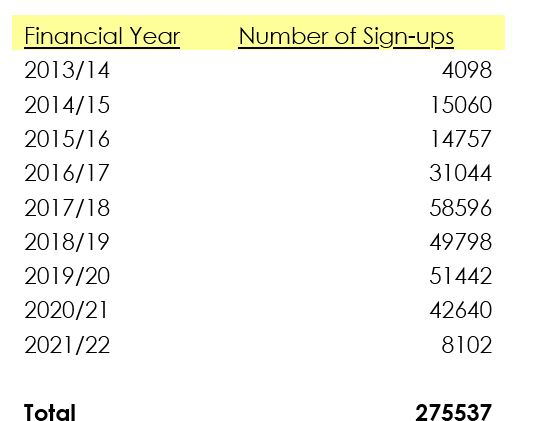 A Freedom of Information Request (FOI) suggests that just fewer than 1% of UK homeowners have signed up to a free government alert scheme that can help protect properties from fraudulent transactions,
A Freedom of Information Request (FOI) suggests that just fewer than 1% of UK homeowners have signed up to a free government alert scheme that can help protect properties from fraudulent transactions,
In over eight years a total of just 275,537 people have signed up to HM Land Registry’s free Property Alert Service according to the FOI request made by property and legal fintech Thirdfort.
Thirdfort was founded by schoolfriends Olly Thornton-Berry and Jack Bidgood after a friend was defrauded out of £25,000 whilst buying a flat in London.
The FOI request to HM Land Registry revealed that the total number of sign-ups to its Property Alert Service since its launch in 2014 was just 275,537.
An owner is able to register up to 10 properties, but with approximately 29 million homes in the UK, it is probable that fewer than around 1% of property owners have signed up to receive alerts on their property, despite the significant risks of title fraud.
The figures follow reports recently that a man in Luton returned home to discover that his house has been sold without his knowledge.
HM Land Registry launched its Property Alert service in 2014 to help tackle property fraud.
Property owners can sign up and register up to 10 properties to be monitored. Email alerts will be sent when HM Land Registry receives an application to change the register as well as for official searches. This enables property owners to judge whether the activity is suspicious and if they should seek further advice.
The Property Alerts are free to use, offering a quick and simple way for homeowners to protect themselves against property title fraud. They typically take around three minutes to sign up to and provide an early warning of suspicious activity, allowing property owners to take immediate action.
Olly Thornton-Berry, co-founder and Managing Director of Thirdfort:
“Property title fraud can happen in many ways, but typically involves fraudsters attempting to acquire ownership of a property using forged documents to impersonate the registered owner.
“Properties most at risk include empty properties, tenanted properties and those without a mortgage.
“As gatekeepers to the property market, estate agents and conveyancers have a key role to play in spotting fraudulent attempts to buy property. That’s why we’re working with more than 550 law firms and property businesses to enhance ID checks using AI, passport chip reading, facial recognition and Open Banking technology.
“Yet, there are also some simple steps that homeowners can take to minimise the risk of such fraud. So, it’s worrying that so few have taken this opportunity, particularly as fraudsters become increasingly sophisticated.
“We would urge homeowners to take advantage of HM Land Registry’s free and easy-to-use service.”
Man arrested, accused of selling somebody else’s house without their knowledge



It’s a good service and I use it for my rental properties. However, if you own and live in a house, the risk of the type of fraud perpetrated on the man in Luton that has started this discussion is vanishingly small. It can be perpetrated when the property is vacant for an extended period or by a tenant who impersonates the owner. I don’t know if the Land Registry system could cope if 5- 10 million people logged their properties.
You must be logged in to like or dislike this comments.
Click to login
Don't have an account? Click here to register